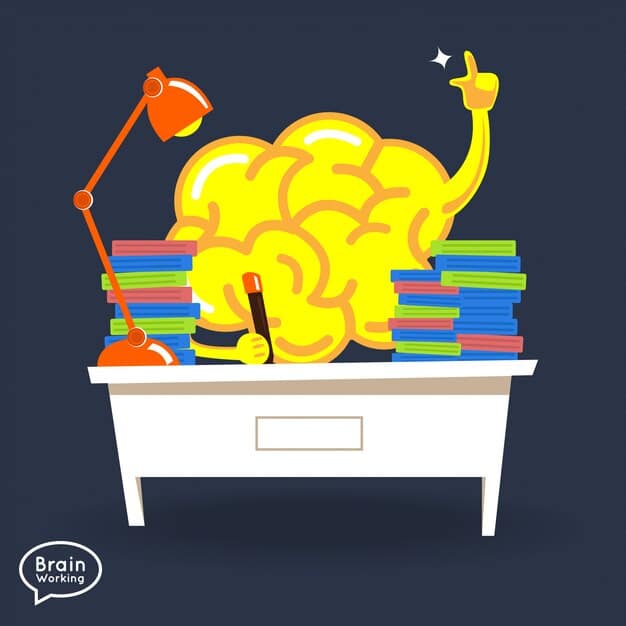Author Spotlight: AI’s Role in Modern Authoring 2025

The year 2025 marks a pivotal moment where authors are increasingly utilizing artificial intelligence to revolutionize their writing process, from idea generation and research to advanced editing and marketing strategies, enhancing efficiency and creative output significantly.
The literary world is undergoing a seismic shift, and at its epicenter lies the rapidly evolving integration of artificial intelligence (AI) into the creative process. This Author Spotlight: Discover How Authors Are Leveraging AI to Enhance Their Writing Process in 2025 delves into how contemporary writers are harnessing these powerful digital tools, transcending traditional boundaries to innovate and streamline their craft.
The Evolution of AI in Authoring
The journey of AI in enhancing the author’s toolkit has been nothing short of remarkable, transitioning from rudimentary spell-checkers to sophisticated systems capable of profound linguistic analysis and even creative generation. Initially, authors viewed AI with skepticism, often perceiving it as a threat to human creativity or a tool reserved for technical documentation rather than artistic expression. However, as AI models grew in complexity and their capabilities became more nuanced, a growing number of authors began to explore their potential, embracing these technologies not as replacements, but as powerful collaborators.
This evolution is particularly evident in how AI has moved beyond simple grammar correction. Today, an author can leverage AI for comprehensive style analysis, ensuring consistency across narratives or adapting tone for specific audiences. The ability to receive real-time feedback on sentence structure, word choice, and narrative flow has fundamentally altered the revision process, allowing for more iterative and efficient refinement. Furthermore, the advent of generative AI has opened up entirely new avenues for brainstorming and content creation, though authors are keenly aware of the importance of maintaining their unique voice and artistic integrity.
From Assistance to Partnership
The relationship between authors and AI is transforming from one of mere assistance to a genuine partnership. This collaborative dynamic is characterized by AI handling the more labor-intensive and repetitive tasks, freeing up the author’s cognitive resources for higher-level creative thinking. This includes:
- Automated research compilation, gathering disparate pieces of information quickly.
- Character development outlines, suggesting traits, backstories, and motivations.
- Plot pacing analysis, identifying slow or rushed sections within a manuscript.
- Dialogue generation for minor characters, ensuring consistency without exhaustive effort.
The shift is not about ceding creative control to machines, but rather intelligently delegating tasks that can be efficiently handled by algorithms, thereby accelerating the creative cycle. This iterative process, where AI provides suggestions that an author can accept, reject, or modify, mirrors the traditional editing process but at an unprecedented speed and scale. Authors are learning to prompt AI with increasing sophistication, turning vague ideas into concrete textual possibilities.
The contemporary author recognizes that AI systems, while powerful, lack true understanding or consciousness. Their utility lies in pattern recognition, data processing, and rapid content generation based on vast datasets. This critical distinction enables authors to use AI strategically, leveraging its strengths while safeguarding the unique human elements of their work—emotion, nuance, and genuine originality. The focus remains on how AI can augment human capabilities, not diminish them.
Brainstorming and Idea Generation with AI
For many authors, especially those grappling with writer’s block or seeking fresh perspectives, AI has emerged as an invaluable tool for brainstorming and idea generation. The sheer volume of data that AI models process allows them to identify patterns, make connections, and generate concepts that might otherwise elude human intuition alone. This doesn’t mean AI is penning the next great novel; rather, it acts as a dynamic creative partner, providing springboards for human imagination.
Authors are increasingly using AI to overcome the initial hurdle of a blank page. By inputting brief prompts, themes, or even character archetypes, AI can generate a wide array of story concepts, plot twists, character names, or even setting descriptions. This rapid prototyping of ideas allows authors to quickly evaluate multiple directions, selecting the most promising ones to develop further. The process is akin to having an inexhaustible junior editor constantly feeding you intriguing suggestions.
Crafting Unique Story Concepts
One of the most compelling applications of AI in brainstorming is its ability to help authors craft unique story concepts from seemingly disparate elements. Authors often struggle with finding a novel angle for a familiar genre or weaving unexpected themes into their narratives. AI can facilitate this by:
- Suggesting unconventional cross-genre combinations, like a historical romance set in a dystopian future.
- Generating “what if” scenarios based on current events or historical anomalies.
- Developing intricate world-building details based on a few initial parameters.
- Proposing moral dilemmas or psychological conflicts for characters.
The key is for authors to use these AI-generated ideas as starting points, filtering them through their own creative lens and adding the depth, emotion, and originality that only a human can provide. The AI offers a vast library of possibilities, but the author’s discerning eye selects and cultivates the seeds that will grow into a compelling narrative. This iterative process often involves several rounds of prompting and refining, shaping raw AI output into something truly unique.
The true value of AI in this context lies in its ability to prevent creative stagnation and introduce serendipitous connections. It democratizes the brainstorming process, making it more efficient and less dependent on bursts of unpredictable inspiration. While AI can simulate creativity, it is the author’s discernment, emotional intelligence, and lived experience that imbue the generated ideas with soul and purpose, transforming raw data into meaningful art.
Research and Fact-Checking Efficiencies
In an age where information is abundant but reliability is often questionable, AI has become an indispensable asset for authors engaged in research and fact-checking. The laborious process of sifting through countless sources, verifying claims, and organizing data can consume an enormous amount of an author’s time. AI, with its capacity for rapid data analysis and synthesis, dramatically streamlines these tasks, allowing authors to focus more on narrative development and less on administrative legwork.
Authors of non-fiction, historical fiction, or even highly detailed fantastical worlds benefit immensely from AI’s research capabilities. AI-powered tools can quickly scour academic databases, historical archives, news articles, and scientific journals to retrieve specific information. This includes details like historical events, scientific principles, cultural nuances, or even the precise dimensions of a specific type of ancient sailing ship. The speed at which these tools can operate means an author can gather a comprehensive body of knowledge on a subject in a fraction of the time traditionally required.
Ensuring Accuracy and Reliability
Beyond mere data retrieval, AI plays a crucial role in enhancing the accuracy and reliability of information, a cornerstone of authoritative writing. AI algorithms can be trained to:
- Cross-reference facts across multiple reputable sources, flagging discrepancies.
- Identify potential biases or dubious claims within source materials.
- Summarize complex research papers, extracting key findings and methodologies.
- Verify statistical data and academic citations efficiently.
While AI can significantly reduce the risk of factual errors, it doesn’t eliminate the need for human oversight. Authors remain the ultimate arbiters of truth and context. They must critically evaluate the information presented by AI, ensuring that it aligns with their narrative objectives and ethical standards. AI acts as a sophisticated digital assistant, providing a robust first pass at fact-checking, but the final judgment and nuanced interpretation still fall to the author.
The true advantage here is not just speed, but depth. By offloading the initial, time-consuming research phases to AI, authors gain the freedom to delve more deeply into the implications of their findings, explore tangential subjects, and enrich their narratives with a level of detail and accuracy that would be difficult to achieve manually. This symbiotic relationship between human discernment and algorithmic efficiency elevates the overall quality and credibility of the written work.

AI in Drafting and Editing Manuscripts
The core processes of drafting and editing, once solely the domain of tireless human effort, are now being significantly augmented by AI. While AI is not yet capable of penning a complete, emotionally resonant novel from scratch, its utility in the iterative cycles of writing and revision is transformative. Authors are finding that AI serves as an incredibly efficient first-pass editor and a constant source of stylistic suggestions, allowing them to refine their prose with unprecedented speed and precision.
In the drafting phase, AI can assist with maintaining narrative consistency, ensuring character names are spelled correctly, and tracking plot points. Some authors even use AI for generating initial drafts of less critical sections, such as descriptive passages for a setting or placeholder dialogue for minor characters. This allows the author to maintain momentum and focus their creative energy on the pivotal moments and character arcs that define their unique voice. The aim is to overcome initial creative inertia and build a coherent foundation for the narrative.
Refining Prose and Style
The editing stage is where AI truly shines for many authors. Beyond basic grammar and spell-checking, advanced AI tools offer comprehensive analysis of prose, helping authors to:
- Improve sentence structure, identifying overly complex or repetitive patterns.
- Enhance word choice, suggesting stronger verbs and more evocative adjectives.
- Maintain consistent tone and voice throughout the manuscript.
- Identify clichés and overused phrases, prompting the author to find fresh expressions.
- Analyze readability, ensuring the text is accessible to the target audience.
This sophisticated level of feedback allows authors to elevate their writing beyond simply being “correct” to being truly impactful and engaging. AI can pinpoint areas where the prose falters, where the rhythm is off, or where clarity is compromised, providing targeted suggestions for improvement. The author retains full control, deciding which suggestions to incorporate, but the AI’s analytical power acts as an invaluable second pair of eyes, often catching nuances that a human editor might miss on an initial pass.
The integration of AI into editing workflows is not about replacing human editors, whose role involves deeper critical analysis, knowledge of literary trends, and understanding of market nuances. Instead, AI serves as a powerful preparatory tool, allowing authors to submit cleaner, more polished manuscripts to their human editors. This collaborative approach enhances efficiency for both parties, freeing human editors to focus on the higher-level structural and thematic elements of a work. The ultimate goal is to produce a more refined final product that resonates deeply with readers.
Copyright and Ethical Considerations in AI Authoring
As AI’s role in the creative process expands, so too do the complex legal and ethical questions surrounding its use, particularly concerning copyright and authorship. The traditional framework of copyright law is fundamentally built upon the concept of human creation, often leading to ambiguous situations when AI is involved. Authors navigating this new landscape must be acutely aware of these challenges to protect their intellectual property and maintain ethical integrity.
One of the primary concerns revolves around who owns the copyright to AI-generated content. If an author uses an AI tool to generate text, is the author the sole owner of that content, or does the AI developer, or even the AI itself, hold some claim? Current legal interpretations are still evolving, but generally favor human authorship. However, if AI generates content largely independently, without significant human input or transformation, the copyright status can become considerably murkier. This necessitates careful user agreements and a clear understanding of the terms of service for any AI tool utilized.
Navigating the Attribution Landscape
Beyond ownership, ethical considerations regarding attribution and transparency are paramount. Authors have a responsibility to:
- Disclose the extent of AI involvement if it significantly contributes to unique content generation, particularly in academic or journalistic contexts.
- Avoid plagiarism by ensuring AI-generated text is not derived from copyrighted material without proper licensing or transformation.
- Maintain their unique authorial voice, ensuring AI assistance doesn’t dilute their creative identity.
- Understand the training data of AI models, as biases or copyrighted material within the data could lead to unintended ethical pitfalls.
The rise of AI in authoring also brings forth the question of authenticity. Readers often seek connection with the human mind behind a story. If AI’s role is not transparent, it could erode trust and the perceived value of human creativity. Striking a balance between leveraging AI’s efficiencies and preserving the integrity of human artistic expression is a constant tightrope walk that authors must master.
Ultimately, the onus is on authors to engage with AI responsibly and ethically. This means staying informed about evolving legal precedents, demanding transparency from AI tool developers, and, most importantly, ensuring that AI remains a tool in service of human creativity, rather than a replacement for it. The goal is to innovate without compromising the foundational principles of authorship and intellectual property that underpin the literary world.
The Future of Storytelling: AI and Human Collaboration
The trajectory of writing in 2025 clearly points towards a future where human authors and artificial intelligence systems engage in an increasingly symbiotic relationship, fundamentally reshaping the landscape of storytelling. This isn’t a future where machines write our narratives for us, but one where AI acts as a sophisticated co-pilot, enhancing the human capacity for creativity, efficiency, and reach. The potential for innovation, personalization, and narrative exploration is vast and unprecedented.
This collaboration promises to unlock new forms of storytelling previously unimaginable. Authors might leverage AI to create highly interactive narratives where readers influence plot outcomes or to personalize stories based on reader preferences. AI could facilitate the rapid adaptation of content across different media, from novels to screenplays to immersive virtual reality experiences, breaking down traditional genre and format barriers. The boundaries of literary art are being stretched, driven by the combined power of human imagination and algorithmic prowess.
New Horizons for Authors
For authors, this collaborative future offers several compelling new horizons:
- Increased Productivity: AI handles repetitive tasks, freeing authors to focus on high-level creative work.
- Enhanced Creativity: AI acts as a brainstorming partner, suggesting novel ideas and overcoming creative blocks.
- Broader Reach: AI aids in translation and content localization, reaching wider global audiences.
- Deeper Personalization: AI assists in crafting unique reader experiences, from character interactions to plot variations.
- Faster Publication Cycles: Streamlined research and editing accelerate manuscript completion.
The success of this collaboration hinges on authors retaining their unique voice and artistic control, using AI as a force multiplier for their vision, not a substitute for it. The emotional depth, nuanced understanding of the human condition, and genuine originality that define great literature will always stem from the human mind. AI, in this context, serves as an incredibly powerful assistant, enabling authors to tell their stories more effectively, efficiently, and with greater impact.
As technology continues to advance, the methods and tools available to authors will evolve in tandem. The truly forward-thinking authors of 2025 are those who embrace these changes, not with fear, but with a keen understanding of how AI can amplify their creative potential. The future of storytelling is not just about better tools; it’s about better stories, told by empowered human voices, reaching audiences in more profound and engaging ways than ever before.

Challenges and Opportunities for Authors
While the integration of AI into the authoring process presents immense opportunities, it also comes with its share of challenges that authors must skillfully navigate. Balancing the desire for efficiency and innovation with the need to preserve artistic integrity and individuality is paramount. Understanding these dual facets is key for any author looking to thrive in the evolving literary landscape.
One significant challenge is the potential for over-reliance on AI, leading to homogenized or formulaic writing lacking genuine originality. If authors indiscriminately accept AI-generated suggestions, their unique voice might be diluted, resulting in work that feels generic. Maintaining a distinctive style and perspective requires conscious effort and discernment, resisting the urge to let AI dictate the entirety of the creative direction. Authors must actively guide the AI, treating it as a responsive tool rather than an autonomous creator.
Leveraging AI for Growth
Despite these challenges, the opportunities presented by AI are transformative. For authors, these include:
- Democratization of Publishing: AI tools can level the playing field, making professional-grade writing and editing more accessible to independent authors.
- Enhanced Productivity: Freeing up time from mundane tasks allows authors to dedicate more energy to pure creativity and marketing.
- Expanded Creative Exploration: AI can help overcome creative blocks, suggesting new angles or narrative paths.
- Audience Engagement: AI-powered analytics can provide insights into reader preferences, informing future writing decisions.
- Global Reach: Tools for translation and localization aid in reaching diverse international audiences without extensive manual effort.
Beyond the creative process, AI offers opportunities in the business of authorship. For instance, AI algorithms can analyze market trends and reader data, providing authors with insights into popular genres, character tropes, or even optimal publishing schedules. While not always prescriptive, such data can inform strategic decisions, potentially increasing an author’s commercial success. Similarly, AI can assist in crafting more effective marketing copy and social media engagement strategies, extending an author’s reach to potential readers.
Ultimately, the future belongs to authors who view AI not as a replacement, but as an advanced enhancer—a powerful instrument in their symphony of words. The challenge lies in mastering this instrument, understanding its strengths and limitations, and integrating it thoughtfully into a workflow that prioritizes human ingenuity and artistic expression. The rewards are significant: more compelling stories, greater efficiency, and broader impact in a world increasingly hungry for diverse and engaging narratives. The authors of 2025 are pioneers, redefining what it means to write.
| Key Aspect | Brief Description |
|---|---|
| 💡 Idea Generation | AI provides novel concepts and plot twists, aiding authors through creative blocks. |
| 📝 Drafting & Editing | AI refines prose, checks grammar, and suggests stylistic improvements for manuscripts. |
| 🔍 Research Efficiency | AI rapidly gathers and verifies facts across vast databases, saving authors time. |
| ⚖️ Ethical Use | Authors must navigate copyright, ensure transparency, and maintain unique voice with AI integration. |
Frequently Asked Questions About AI in Writing
While AI can generate extensive text, including complete narratives, it currently lacks the nuanced understanding, emotional depth, and original creative spark inherent to human authorship. AI-generated novels often fall short in terms of genuine character development, complex plot coherence, and the unique artistic vision that defines compelling literature. Authors primarily use AI as a tool to assist, not replace, their creative process.
AI can be an effective tool for overcoming writer’s block by providing diverse prompts, fresh ideas, character concepts, or plot suggestions based on limited input. It can quickly generate multiple narrative directions, themes, or even specific descriptive passages, offering authors a creative springboard. This rapid generation of ideas helps authors bypass initial creative inertia and find new inspiration to continue their work.
The ethical use of AI in writing is a developing area. Generally, it is ethical when used as an assisting tool, helping with research, editing, or idea generation, rather than outright content creation without significant human input. Transparency about AI’s role, ensuring human oversight, and upholding copyright principles are crucial. Authors should also ensure AI-generated content does not inadvertently plagiarize or contain biases from its training data.
AI is highly effective at identifying grammatical errors, stylistic inconsistencies, and basic structural issues. However, it cannot replicate the critical thinking, nuanced literary understanding, creative suggestions, and empathetic insight of a human editor. Human editors provide invaluable feedback on narrative arc, character motivation, thematic depth, and overall artistic impact. AI serves as a powerful pre-editing tool, making human editors’ work more efficient and focused on higher-level concerns.
To maintain a unique voice, authors should use AI as a collaborator rather than a master. This means critically evaluating all AI suggestions, adapting them to fit your personal style, and infusing your own experiences and perspectives into the text. Focus on using AI for more mechanical tasks, such as initial drafting or editing passes, reserving the core creative and stylistic decisions for your own judgment. Regular self-reflection on your unique patterns and preferences also helps.
The Evolving Narrative of Authorship
The year 2025 marks a pivotal chapter in the ongoing story of authorship, where the synergy between human creativity and artificial intelligence is not merely a theoretical concept but a tangible reality for many writers. As explored throughout this spotlight, authors are no longer just adapting to technological advancements; they are actively shaping them, leveraging AI to redefine the boundaries of what’s possible in storytelling. From overcoming writer’s block and streamlining painstaking research to refining prose with unprecedented efficiency, AI is proving to be an indispensable ally. Yet, amidst the transformative opportunities, the core essence of authorship—the human touch, the unique voice, and the emotional resonance—remains paramount. The future of publishing is not one where machines replace creators, but rather where they empower them to craft richer, more immersive, and more impactful narratives. The evolving narrative of authorship is ultimately a testament to the enduring power of human imagination, amplified by the intelligent tools of our time.





